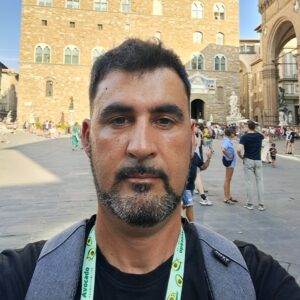Key Expected Outcomes
| Title | Development of Ultra-Efficient Nanoporous Membranes for Desalination based on Transition Metal Carbonitrides |
| Reference | 2022.15645.UTA |
| Scientific Area | Nano Materials for New Markets |
| Funding (US) | 100 000 USD |
| Leading Institutions | Instituto de Polímeros e Compósitos, University of Minho, PT
The University of Texas at Austin, US |
| Duration | 12 months |
| Start date | September 24, 2024 |
| End date | December 31, 2025 |
| Keywords | Desalination; MXene; Atomistic Modeling |
What is DesalMem about?
The project aims to to develop desalination membranes based on 2D transition-metal carbides and nitrides (MXenes). We will explore the idea of introducing sub-nanometer in-plane nanopores in MXene layers to increase its ion-sieving properties while also increasing its water permeability. The team will use computational methods to study the transport through different pore structures and identify the optimal one. This project will advance the desalination science and technology.
How will DesalMem contribute to develop better materials for desalination membranes?
The team will perform atomistic modeling using density functional theory and molecular dynamics to identify the optimal materials and structures, which can be experimentally tested. This may lead to better desalination membranes to meet the increasing global needs for fresh water.


